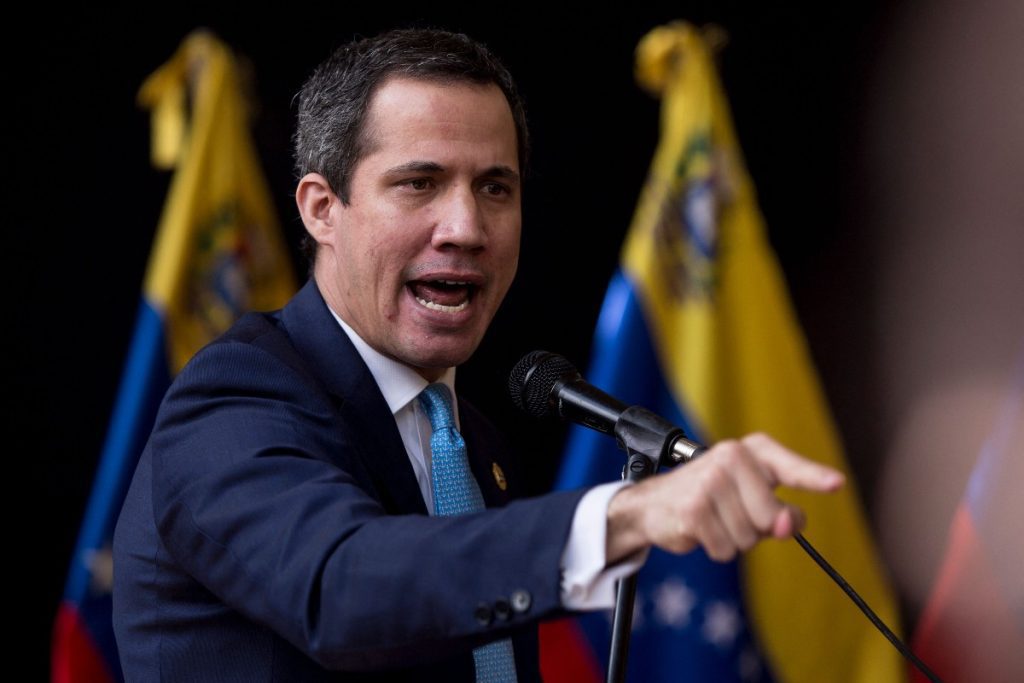(CNN Spanish) — Venezuela’s so-called interim government, led by opposition leader Juan Guaido, will end in January 2023, two sources close to the opposition leadership told CNN.
A diplomatic source close to the Venezuelan opposition initially told CNN that the United States plans to withdraw his recognition as interim president in January, when a new legislative session begins.
Separately, an opposition source confirmed the veracity of an article in the Financial Times this Thursday announcing the imminent end of the “interim.”
“It’s been negotiated for a long time,” a source told CNN.
A senior US government official told CNN: “We continue to recognize the interim government and the people of Venezuela who want a peaceful return to democracy. It is up to the interim government to decide whether to continue with recognition.”
However, a source close to Guaidó told CNN that “the idea of a government in charge will be discussed.” He clarifies that the Unitary Platform is not a single party, but a coalition representing 10 movements, and that “all that is voted for is a majority, which means eight votes.”
The same source promises that recognizing Nicolás Maduro will end responsible government. Finally, referring to a group of opposition politicians who were representatives between 2016 and 2021 and still consider themselves legitimate legislators, Guaidó said he was “going to defend the institutionality of the National Assembly.”
CNN has sought reaction from the White House and the National Security Council in Washington and is awaiting a response.
We have also requested comments from the United States diplomatic representatives coordinating Venezuela issues from Colombia.
News of Guaidó’s change of status comes as the opposition coalition sets the rules for choosing a unitary candidate to run in the next presidential election in 2024.
Guaidó has yet to confirm whether he intends to run.
Guaidó was recognized by 50 countries as Venezuela’s interim president in 2019, with many international actors including the United States, the European Union and the Organization of American States (OAS) boycotting Nicolás Maduro’s presidency and condemning abuses. 2018 Presidential Election.
Maduro and his political allies have always denied such accusations and his government has retained power in Venezuela, backed by dozens of countries, including Russia, China and Cuba.
Although Guaidó continues to declare himself the South American country’s interim president, his leadership in the opposition coalition and the international community has been greatly diminished. This became even more evident after the ruling party regained majority in the National Assembly in the 2020 elections.
In practice, Guaidó has been unable to exercise any political power within Venezuela, although the recognition of governments such as the United States and the British, for example, has allowed him access to the management of certain properties.

“Music ninja. Analyst. Typical coffee lover. Travel evangelist. Proud explorer.”

:quality(85)/cloudfront-us-east-1.images.arcpublishing.com/infobae/TEQF6EONZRFGLLLDIDD4L2O4EE.jpg)

:quality(75)/cloudfront-us-east-1.images.arcpublishing.com/elcomercio/XU32LRAEZFDDPNVHLFU3CKVBYY.jpg)



More Stories
Earthquake in the US today, Wednesday, May 29 – Earthquake’s exact time, magnitude and location via USGS | USGS | composition
President Arrivalo is left with no alternatives to dismissing the Attorney General
Passenger dies after jumping off world’s largest cruise ship in Florida